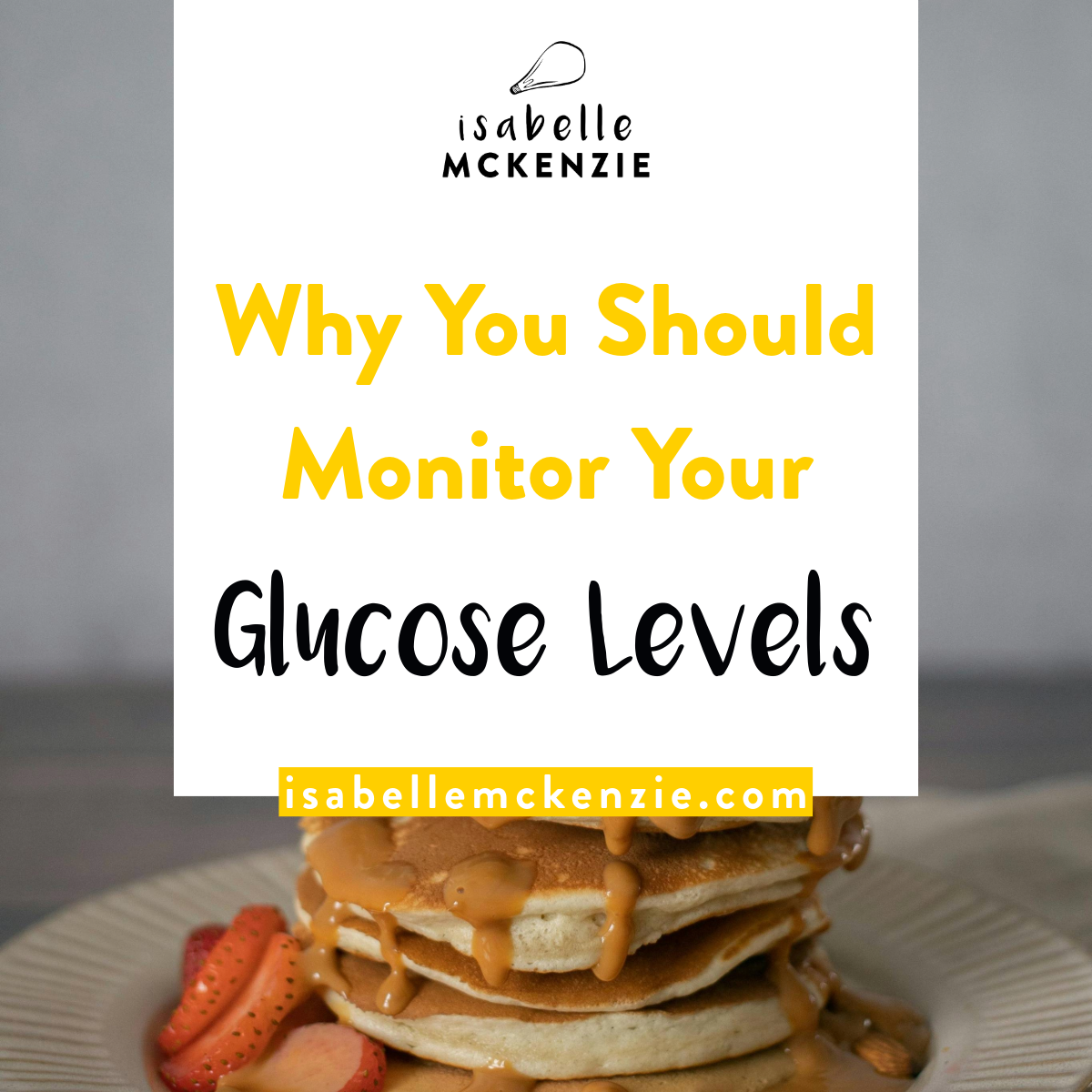Can't Lose Weight? Cut The Sugar In Your Diet!
#SugarBalancedLiving
Have you cut calories and started working out in order to lose weight, but not seen much progress on the scale? Well it turns out that sugar, processed foods and hidden junk foods could be causing you to hold onto that unwanted weight! Here's how sugar can prevent weight gain, as well as how to solve it!
What do you need to be tracking if you want to lose weight? Here’s a hint… it’s not calories!
Do you find yourself in a world of frustration, because yet again, another diet plan has failed after all that nightmarish planning and tracking, and maybe even find that you weigh more than before you started your diet plan?
I totally get it, and I feel for you. I’ve been there – the endless yo yo dieting cycle. But after some serious research and months of fine tuning, I know how to lose weight without the pain of unhealthy fad diets, crazy planning and instead use a key healthy way to lose weight fast and improve your overall health.
And guess what? There are no gimmicks, no measuring or weighing of food and no manic counting calories.
Yep... no counting calories!
While calorie intake is important to healthy weight maintenance or weight loss, the most important component so many people miss is that it’s the types of food you eat to get those calories.
Most sugars, sweeteners, and refined carbs are the biggest threat to not only your weight management but also general health and wellness - not just simply calories.
To lose weight, I always tell my clients first and foremost you need to focus on a specific problem area of your diet: sugar and refined carbs.
If you have always wanted to eat healthier, drop some pounds, and start prioritizing your wellness, the number one way to get there is by reducing the most common toxic ingredient that has been listed by nearly all health experts and doctors as know to cause serious health problems: SUGAR.
With sugar intake linked to affecting everything from your mood, hormones, and skin, to even health conditions like diabetes, the obesity epidemic and EVEN cancer. And sugar is probably one of the most addictive things that you can possibly put into your body, but more on that in a second.
Sadly though, many people don't know the harmful effects of sugar and weight-loss diets, and set themselves up for failure when they focus mainly on calories.
That’s why today we’re going to uncover the detrimental stats of sugar and junk food consumption and finally find out how we can kick off a healthier lifestyle and start dropping unwanted pounds.
How Common is Sugar?
You might be sitting here thinking to yourself “I’m okay I don’t actually eat a lot of candy or sweets, I don’t have much of a sweet tooth, so I’m okay on this one.”
But have you ever intentionally weaned yourself off hidden and processed sugar?
While you might think you’re not eating much sugar, chances are you’re eating a lot more than you realize. A team from the University of North Carolina conducted a detailed survey of the packaged foods and drinks that are purchased in American grocery stores and found that 60 percent of them include some form of added sugar.
The average American consumes almost 152 pounds of sugar in one year. And the worst part is, you may be in this statistic without even being conscious of it.
It’s way to easy to pick up foods that are made with the worst ingredients you can eat – refined sugars, artificial sweeteners, and white flours. Fast food, breads, pasta, soda, coffee drinks and cereals may taste good, but the amount of sugar and the way they’re processed in our body is making us fat and diabetic.
Your average American will eat about 17 teaspoons of added sugar a day, and that’s not even including the sugars that occur naturally in foods like fruit or dairy. This around double the recommended limit for men and triple the limit for women. For children, the limit should only be three teaspoons of added sugar at most.
Sugar is everywhere, even if you have a healthy diet.
What Is Sugar?
“Sugar” in recent times has become a vague all-encompassing term for many different things, from fruit to maple syrup to chocolate bars.
People will sometimes make distinctions between natural sugar like that found in fruit and honey (which we’re told is an okay sugar to eat), and refined sugars such as table sugar and corn syrup, which we’re told to avoid. However, that’s not the complete truth.
To understand and get to the bottom of this, we’re going to get more specific.
Sugar is the generic name for sweet-tasting, soluble carbohydrates.
Sugar is a carbohydrate. Sugar in itself is not a food group. Table sugar, granulated sugar, or regular sugar, refers to sucrose, a disaccharide composed of glucose and fructose. Simple sugars, also called monosaccharides, include glucose, fructose, and galactose.
Most the carbs that we eat are either metabolized into glucose or are left undigested, serving as dietary fiber.
Firstly, there are different types of sugars which occur naturally:
Fructose found in fruits
Lactose found in milk and dairy products
Glucose (your body's main source of energy) found in fruits, veggies, rice, etc.
And then there is sucrose, also called table sugar which is normally refined sugar or a sweetener.
In a natural whole form, sugar is energy for your brain, muscles and organs - they all need glucose to function. The best form of this energy is from fruits, vegetables and complex carbohydrates that have fiber, vitamins and other minerals our bodies need. The fiber helps you metabolize the sugar, easing the effects sugar had on your blood sugar levels and insulin.
You see, the problem with “sugar” like those found in honey and other high fructose foods and sweeteners is that when you look at them, the sources of the sugar are different, but your body can't fully tell the difference, they lack natural whole food fiber (which slows digestion and spikes).
This is an important observation because whether it’s a Hershey’s bar, white sugar, honey, agave, or corn syrup, our bodies can’t inherently distinguish between the natural sugars and the processed sugars, especially since they lack natural whole food fiber (which slows digestion and spikes).
Now you still have to be careful though with whole foods sugar content.
Take, for example, fruit; you can’t just rely on its fiber.
Fruit has sugar in it, way more sugar than other whole foods (with some fruits having more than sugar than others), and that sugar found in fruit can still have the same blood-sugar-spiking effect if eaten in excess.
Now the topic of how much sugar you should be eating from fruit, and what makes sugar in fruit different from refined sugar is quite a big subject. There are many variables, and it all depends on how healthy you are and what your goal is, so I've written a whole blog post on over here. Make sure you check it out to get all the details.
Is Sugar Really That Bad?
Okay, so we now know that sugar spikes our blood sugar levels, and we’ve brushed on the fact that sugar is associated with health conditions from diabetes, food addiction, to the obesity epidemic. But what does this really mean? Does eating sugar directly cause obesity and poor health or is there more going on here?
Well, the joy you may feel from eating sugar can very easily turn to regret, when we uncover the facts contributing to unwanted ailments.
Let’s take a closer look at some of the reasons why sugar and other junk foods that mess with your blood sugar levels are bad for your body and how they can increase the risk of certain diseases. If you're considering a cutting down on sugar or going sugar free for weight loss, you’re going to be in for more than just weight loss, but also an improvement in health and your body’s ability to manage body weight.
1. Scary Liver Conditions
The liver uses fructose, a carbohydrate, to create fat. This process is called lipogenesis. When you eat too much refined sugar or corn syrup, it’ll cause a fatty buildup which can lead to liver disease. Some studies have even shown that sugar can be as damaging to the liver as alcohol, even if you're not overweight. Scary stuff, right?!
Scientists have begun to link fructose consumption to specifically non-alcoholic fatty liver disease (which affects up to 100 million people in the U.S.) and non-alcoholic steatohepatitis.
While fructose is naturally occurring, the big problem is that when fructose is taken from corn, beets, sugarcane and manipulated, it loses all of it’s nutrients and fiber. This means that your body can no longer deal with the sugar intake properly, taking a toll on the liver.
2. Tooth Decay
“Don't eat sweets, or your teeth will all rot out” is a phrase you probably heard a lot from your parents when you were younger. While you most likely didn’t take any notice when faced with a cookie, their words may come back to haunt you.
Sugar has a direct connection to tooth decay.
Any food that contains sugar that you consume whether it is added, natural, or processed, breaks down tooth enamel and can cause cavities.
When you finish eating a food that contains sugar, the molecules combine with saliva and bacteria present in the mouth. This combination will lead to plaque on your teeth.
3. Terrible Nutritional Value
Refined sugar comes from sugar cane or sugar beets, that have been processed to extract the sugar.
During this refining process, literally everything beneficial is removed. Refined sugar does not contain any vitamins, minerals, enzymes, fats, fiber.
There is NOTHING beneficial for you in there – if you never ate refined sugar again you would be totally okay. And this means that foods that are high in sugar generally have little nutrition value. Think, ice creams, juices, pastries, chips, fries, white bread, candies, etc.
Really you only need a moderate amount of natural sugars that are found in whole food sources like fruit and veg.
4. Weight Gain
Lastly, of course the question you all came here looking for an answer too: sugar’s connection to weight gain and loss...
Can Cutting Sugar Aid in Weight Loss?
It's true that eating lots of sugar and junk foods can make us gain weight. But can eating any sugar at all make it harder to reach your weight-loss goals?
Answered simply: YES!
Sugar does many harmful things to our bodies, including leading us to gain weight and eat more of the wrong type of foods. Registered dietitians and public health officials alike agree sugar consumption is a major cause of weight gain and obesity in the United States.
When you eat sugar and many high glycemic index foods like table sugar or maple syrup, it causes a drastic rise in your blood sugar levels which increases your levels of insulin (a fat-storage hormone), instructing fat stores to store fat and preventing it from being broken down – leading to weight gain and health issues.
And even for sugars or sweeteners that are so called low glycemic and don’t spike your blood sugar levels in the same like sweeteners like agave and coconut sugar, unfortunately it’s fructose content is processed straight into your liver – unbalancing your insulin, causing fat storage and again health issues.
Furthermore, sugar revealed weight gain problems strike again. Because sugar spikes your blood sugar, when it drops or basically crashes afterward, you’re left feeling fatigued and wanting to eat even more sugar and high sugar foods.
Basically indulging in foods high in sugar regularly can cause you to gain excess body fat quicker and more drastically, which also increases your chance of getting a metabolic syndrome (linked to being overweight, obesity, inactivity, etc.).
While calories do count, since they’re a guide on what you consume, calories shouldn't be your main focus. The way a food is processed in the body and how much of the protein, carbohydrate, and fat and vitamins and minerals you absorb from the food is seriously important for overall well-being.
Think about this for a second. If you were to cut out most or all sources of added non-whole food sugar food from your diet, the results could be really amazing when you examine the amount of sugar you usually consume daily.
The average adult consumes 82 grams of sugar each day, that’s around a 330 caloric load. Meaning you could lose some serious weight just from sugars calories alone, without even factoring in all of the insulin unbalancing that excess sugar intake causes.
Studies also show that the type of carbohydrate you’re eating matters. A review found in the journal Food and Nutrition Research revealed that refined (white carbs) grains are processed in the body in a way that is similarly to sugar and has been associated with weight gain.
During the refinement process that white grains undergo, most of (if not all) the grains vitamins, minerals and the most important fiber is lost.
For example, white bread and rice don’t have any added sugar or sweeteners, but it quickly converts to glucose (a sugar) in the body and imitate the effects of added sugars.
Also, if were thinking of turning to ‘sugar free’ options, be aware that artificial sweeteners may also be a weight gain culprit. The effects associated with the intake of sweeteners (like aspartame, sucralose, etc.) are also associated with weight gain due to the ambiguous psychobiological signals they send out: sweetness with no calories might lead to overeating and, as a result, loss of control over appetite.
Let’s Do This!
If you’re ready to finally lose weight, actually maintain it or if you're just trying to eat healthier in general, I have good news: reducing or cutting sugar and refined carbs is the secret you’ve needed this whole time.
Eat more whole foods like fruits and vegetables, healthy whole grains, protein-rich lean meats and less processed foods, especially refined carbs and added sugars.
I always like to say: “watching your sugar intake is not a traditional “diet” – it’s a way to return to the natural way of eating, by opting for natural foods that our bodies can process in the healthiest way possible.”
However, before you go anywhere… I know that telling you to quit or reduce sugar and refined carbs is easier said then done. One challenge that adults face when it comes to sugar and weight loss is breaking your bad eating patterns and breaking those addictive food habits.
I know it can be hard going wholesome and removing processed and synthetic packaged foods from your diet, especially when they cause you to endless crave them. So, if your weight has crept up on you and/or you’re tired feeling STUCK in trying to conquer negative food habits without food fads, obsessive dieting, deprivation, or the need for willpower, I have some extra support for you, that’ll help you in cutting down on processed foods and junk foods addictive pull!
I'll be teaching you how to escape the most common and overlooked mistakes made when working on cutting down on or quitting junk foods and sugary foods from your diet.
And since I’m totally here to help you the best I can… for even more effective and actionable support, I’ve put together some seriously useful and easy hacks on cutting back sugar and junk foods for good.
Check out my FREE ‘Ultimate Guide to Crushing Your Sugar Cravings’ Downloadable Guide.
Get started on effortlessly breaking your sugar reliance/addiction for good with help + support. AND, most importantly, while maintaining a healthy balance between your mind and your body - because low-sugar living shouldn’t feel like deprivation.














… yup, the Isabelle behind the IsabelleMcKenzie.com!
Instagram: @ItsIsabelleM | Pinterest: @ItsIsabelleM | Subscribe on Youtube
I’m dedicated to helping teach people how to live their happiest, healthiest life and reach their goals so that they can create the lifestyle of their dreams with integrity & purpose.
I focus on self-care, mind, body and health, dedicated to helping teach peeps how to live their happiest, healthiest life and reach their goals so that they can create the life that will have them jumping out of their bed in the morning to actually live!
Read More >